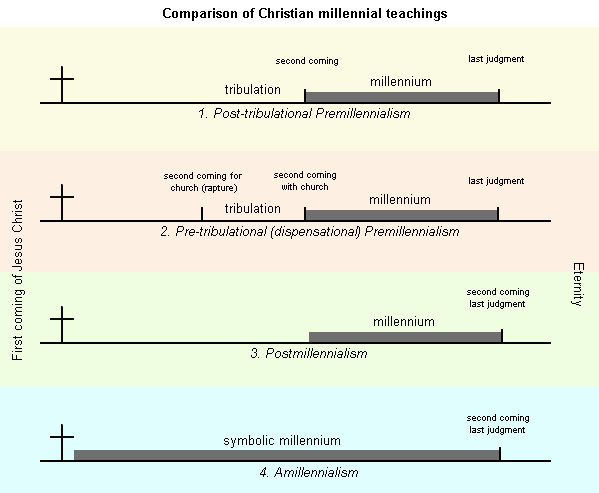MILLENNIAL VIEWS
continued from Part 1 Part 2 Part 3
Christians of all denominations routinely implore “thy kingdom come” without giving it a second thought. It follows that if one is still asking for something to come, then it cannot be fully present. Even so, the expectation for a literal millennial reign of Christ on earth is perhaps the most controversial subject in eschatology. It is inescapable that the bible plainly proclaims it. Revelation 20:1-6 speaks of a one thousand year period when believers reign with the Lord Jesus after his return.
Blessed and holy is the one who shares in the first resurrection! Over such the second death has no power, but they will be priests of God and of Christ, and they will reign with him for a thousand years. (Revelation 20:6)
This plain sense view is also called “chiliasm” from the Greek word chilioi for thousand. Although the word “thousand” is used six times in Revelation chapter 20, the duration is a major point of contention. There is an acknowledged history of allegorical interpretation deeply entrenched in ecclesiastic tradition. Because of this, the majority of the denominational church denies a literal millennium.[1] There are three principle views concerning the millennium promised by God in Revelation chapter twenty: Premillennial (divided into pre & post tribulational positions on the chart below), Postmillennial, and Amillennial.
My next post will outline the Amillennial view and its theological implications.
[1]John F. Walvoord, The Prophecy Knowledge Handbook, Includes Indexes. (Wheaton, Ill.: Victor Books, 1990), 624.




